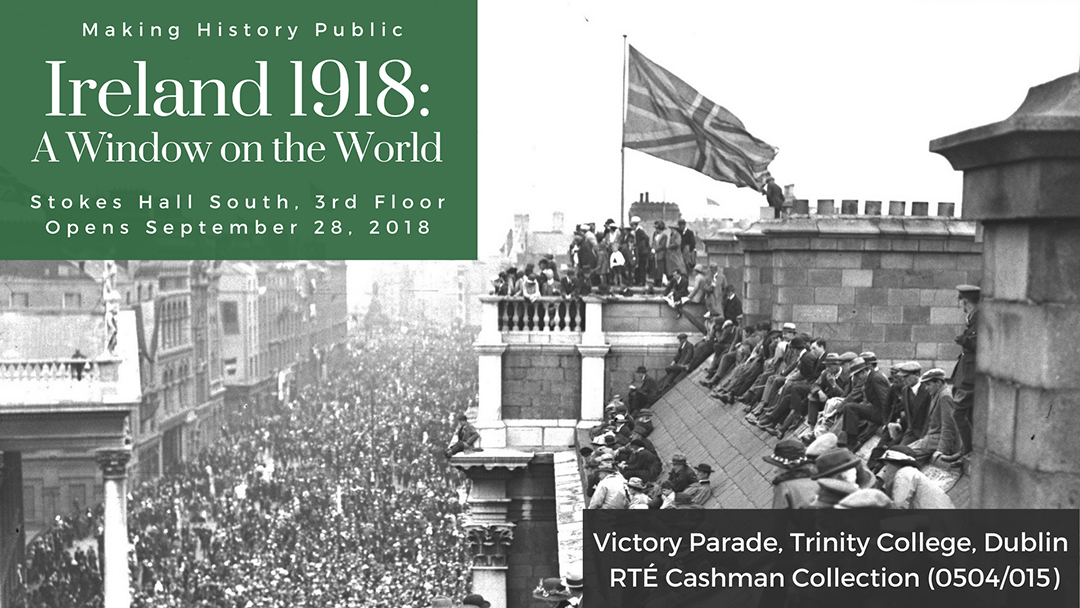The year 1918 was momentous for Ireland and the world in general. The purpose of this exhibit is to contextualize and relate the history of Ireland in that year to a global perspective. Although still part of the United Kingdom Irish separatists had taken the occasion of the First World War to stage a rebellion, “The Rising” in Irish terms, at Easter 1916. While short-lived and ruthlessly crushed that event brought to center stage the Sinn Féin party. In the general election of December 1918 it triumphed at the polls emphasizing democratic values in the face of collapsing empires, Ottoman, German, Austrian, Russian, and threatening the integrity of the British Empire. Southern Ireland’s break with the United Kingdom in 1922 would become a model for other countries seeking independence from Britain.
Sinn Féin’s success was facilitated by the British Parliament’s Representation of the People Act 1918. Men over 21 were given universal suffrage and women over 30 were allowed to vote for the first time. Many of these new voters supported Sinn Féin. The women’s suffrage movement had swept the developed world in the previous decades. Britain was a reluctant advocate of this democratic development. It was, however, ahead of the United States which delayed women’s votes until 1920, and Switzerland where women were not fully enfranchised until 1972. A further act of the British Parliament, which became law in November 1918, enabled women to stand for Parliament. The general election of December 1918 witnessed the election of the first woman to the House of Commons, Constance Markievicz (née Gore-Booth). However as a revolutionary Irish Nationalist and a member of Sinn Féin she boycotted the British Parliament.
The enormous contribution of the United States to the war effort helped shorten World War I and facilitated the Armistice of November 11th 1918. Ireland’s contribution to the Great War, despite the strength of Nationalist feeling, was significant in United Kingdom terms. President Woodrow Wilson had not only provided material for war but he also unveiled a program for a new world order with his Fourteen Points of January 1918. He followed this up in the following month with a speech on the “self-determination” of small nations, an idea which had deep resonance in Ireland. His refusal to support publically Irish independence caused great bitterness in Ireland and among Irish-Americans. This to some extent cast a shadow over his legacy.
For more information on the exhibit, please review the companion website and interactive timelines.

